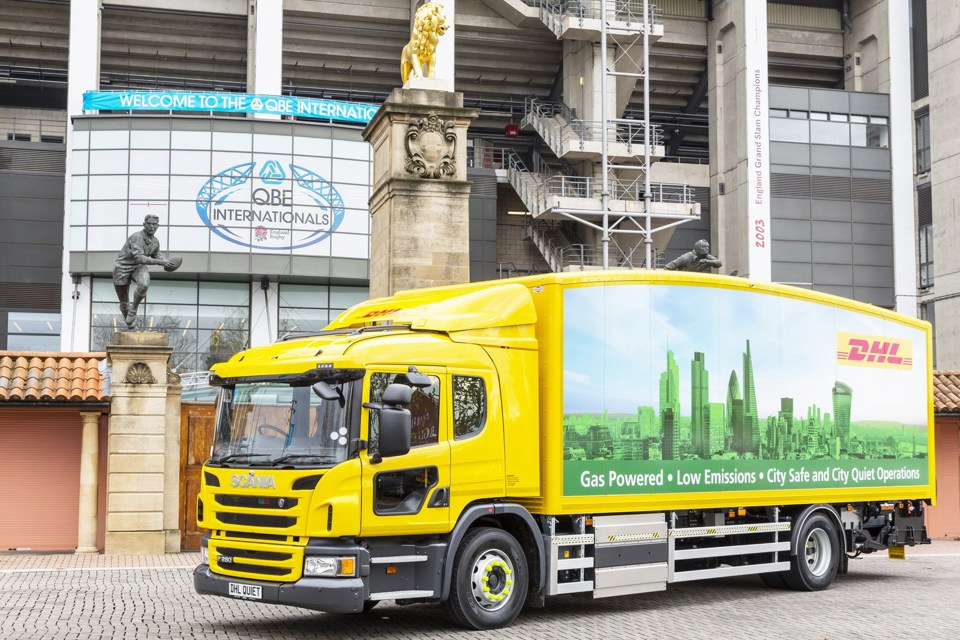Dedicated gas commercial vehicles have potential to deliver significant greenhouse gas (GHG) savings when a non-fossil, renewable or synthetic methane blend is used.
That’s according to a study for the Department for Transport (DfT) by the Low Carbon Vehicle Partnership (LowCVP).
The work – Emissions Testing of Gas-Powered Commercial Vehicles - published by the DfT and supported by members of the LowCVP's newly-formed Commercial Vehicle Working Group, recommends that the Government should continue to support the development of gas vehicle infrastructure and gas-powered vehicles, particularly dedicated gas, while increasing the supply of low carbon/renewable methane as a sustainable transport fuel in order to realize these benefits.
The primary opportunity identified in the earlier (2012) Low Carbon HGV Barriers and Opportunities report (by Ricardo, commissioned by the LowCVP) was to increase the use of methane and, ultimately, biomethane, as a road fuel for heavy goods vehicle operation.
LowCVP's managing director Andy Eastlake said: “This work shows that powering heavy vehicles with natural gas - and, particularly, biomethane - does have the potential to make a significant contribution to cutting emissions from this hard-to-tackle sector of road transport.”
The LowCVP was commissioned in 2016 to conduct a testing programme on the latest methane trucks to identify the performance of Euro VI vehicles and identify the greenhouse gas impacts, highlighting any areas for further development.
Some key findings of the LowCVP report are:
- The Euro VI dedicated gas vehicles tested through this programme exhibit very low levels of methane slip, typically adding less than 0.5% to the overall greenhouse gas (GHG) impacts of those vehicles compared with the CO2-only case.
- The only after-market dual-fuel system tested, converting a Euro VI diesel truck to diesel and natural gas operation, exhibited high levels of methane slip (sufficient to increase GHG emissions by c20%).
- The after-market dual fuel (diesel/CNG) conversion of a Euro V vehicle exhibited high levels of methane slip (sufficient to increase GHG emissions by c20-30%).
- The research has not yet been able to disprove the hypothesis that Euro VI diesel trucks typically emit quite high levels of nitrous oxide (N2O). Further evidence is needed to quantify this.
- Euro VI dedicated gas vehicles emit lower levels of NOx emissions than the already low levels exhibited by their diesel counterparts. The same is true if only NO2 emissions are considered. Emissions of carbon monoxide and hydrocarbons, however, were typically higher.
Stakeholders have indicated that effective catalysis of methane is possible, as is more effective in-cylinder methane combustion.
Two current Innovate UK/OLEV-funded projects are developing new retrofit dual-fuel systems, finishing in 2019.
At least one OEM is developing its own dual fuel (diesel-methane) system, with availability anticipated towards the end of 2017.
The testing indicates that the transition to Euro VI has, for diesel heavy goods vehicles, been effective in cutting overall NOx emissions by over 98% when compared to Euro V vehicles. A further move from Euro VI diesel vehicles to Euro VI dedicated gas increases the magnitude of that reduction in NOx emissions to at least 99%.
The study also suggested that there is potential for GHG savings from dual fuel diesel/LPG conversions, and the role of bio-LPG and that the Government should also consider enhancing its support mechanisms in this area.
The LowCVP has been supporting the DfT Task Force in activity to develop an overarching strategy together for HGV operation on methane gas.
The LowCVP study has been published alongside the DfT's final report on the Low Carbon Truck and Refuelling Infrastructure Demonstration Trial which began in 2012 and concluded in 2016. £11.3 million funding (via the Office of Low Emission Vehicles and Innovate UK) was awarded for the trial to UK road haulage operators via competition.
The report, prepared by Atkins and Cenex, presents key findings on the environmental, economic and operational performance of the alternatively-fuelled vehicles and refuelling infrastructure trialled through the competition.
Natural gas vehicles have received earlier support from the Government with the guarantee of an advantageous road fuel duty differential for 10 years.




















Login to comment
Comments
No comments have been made yet.